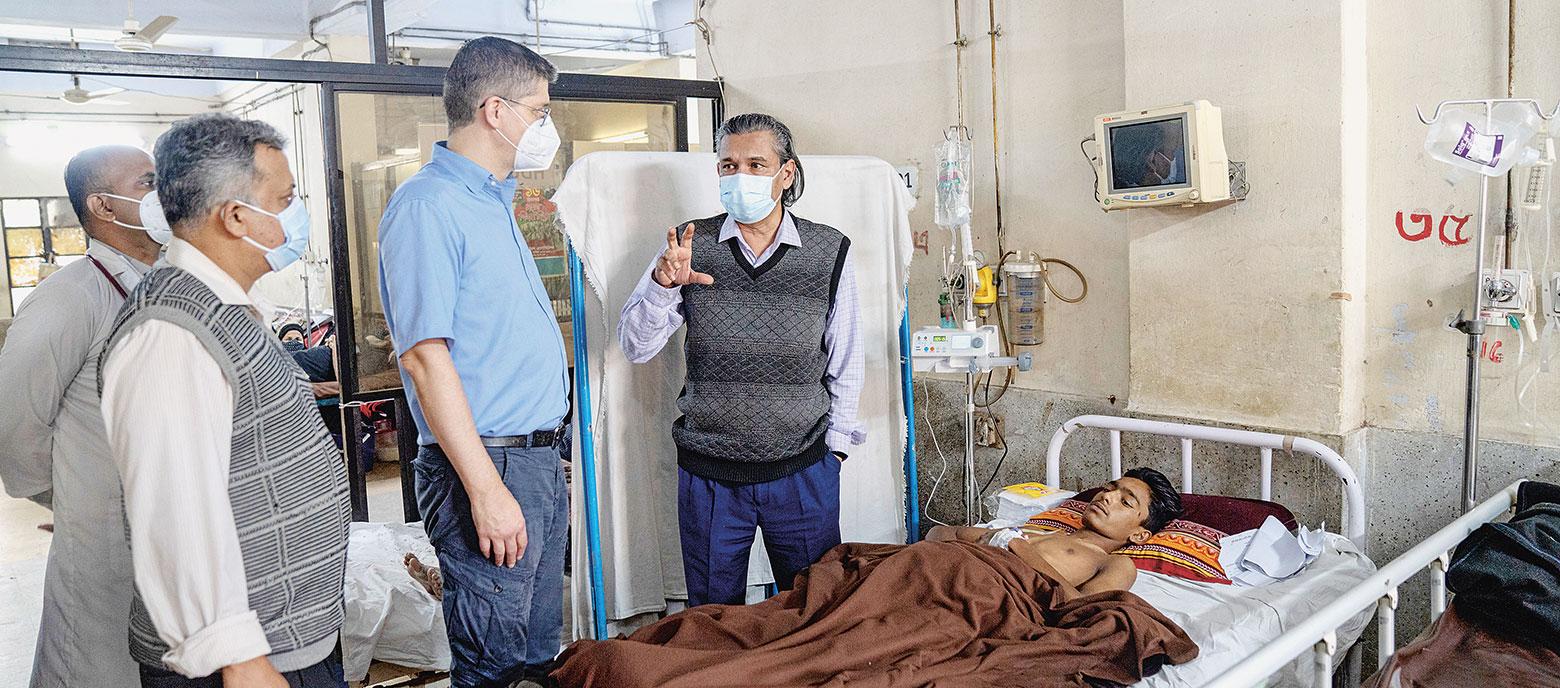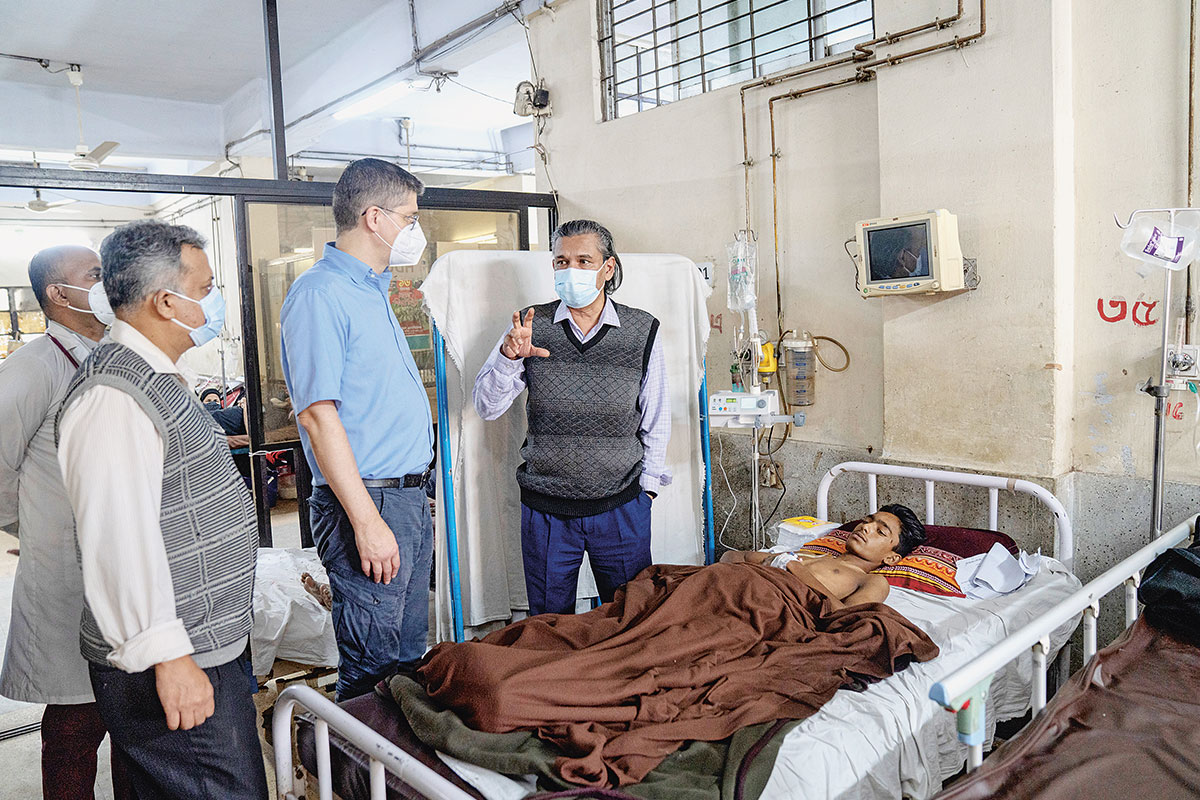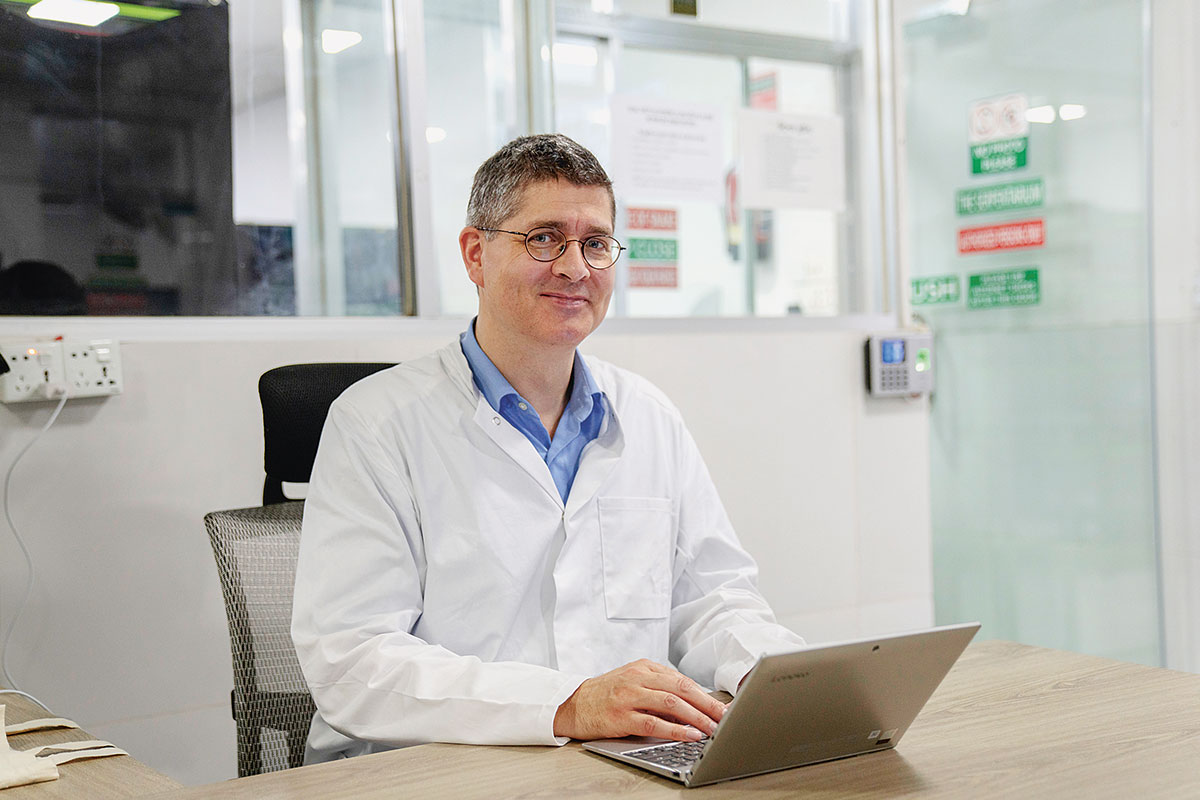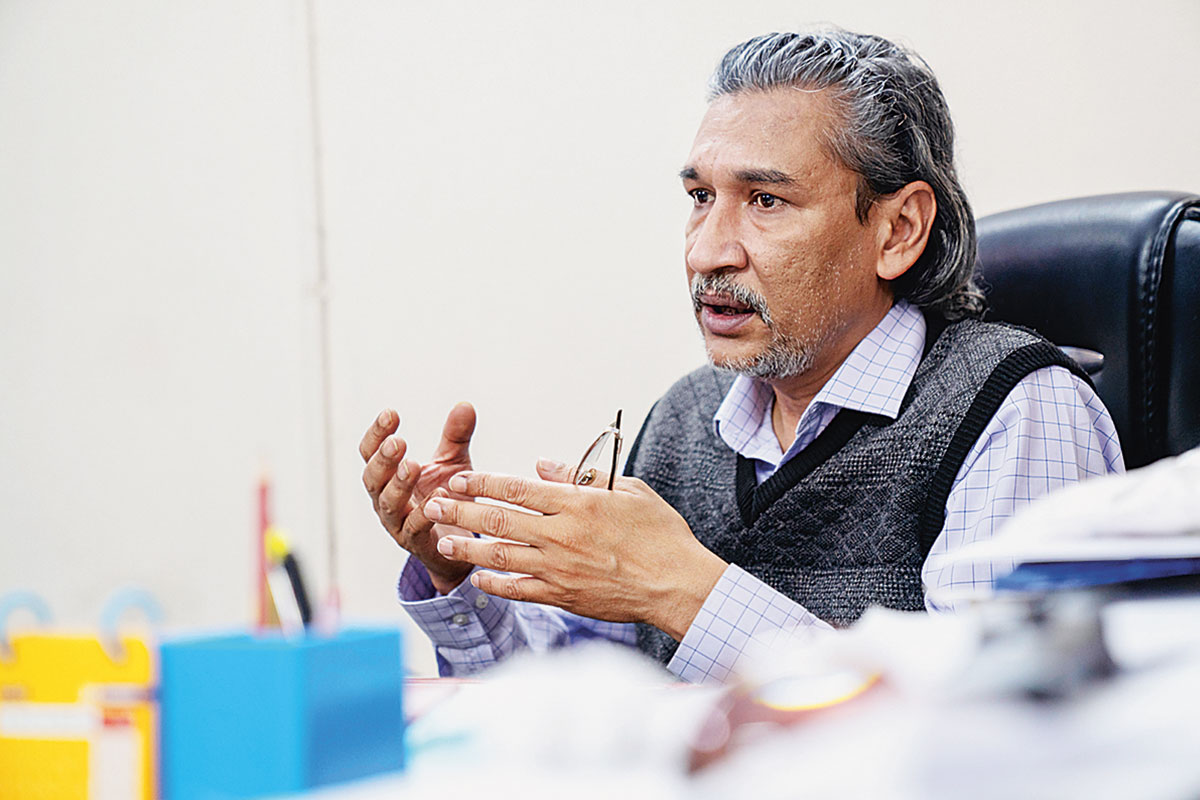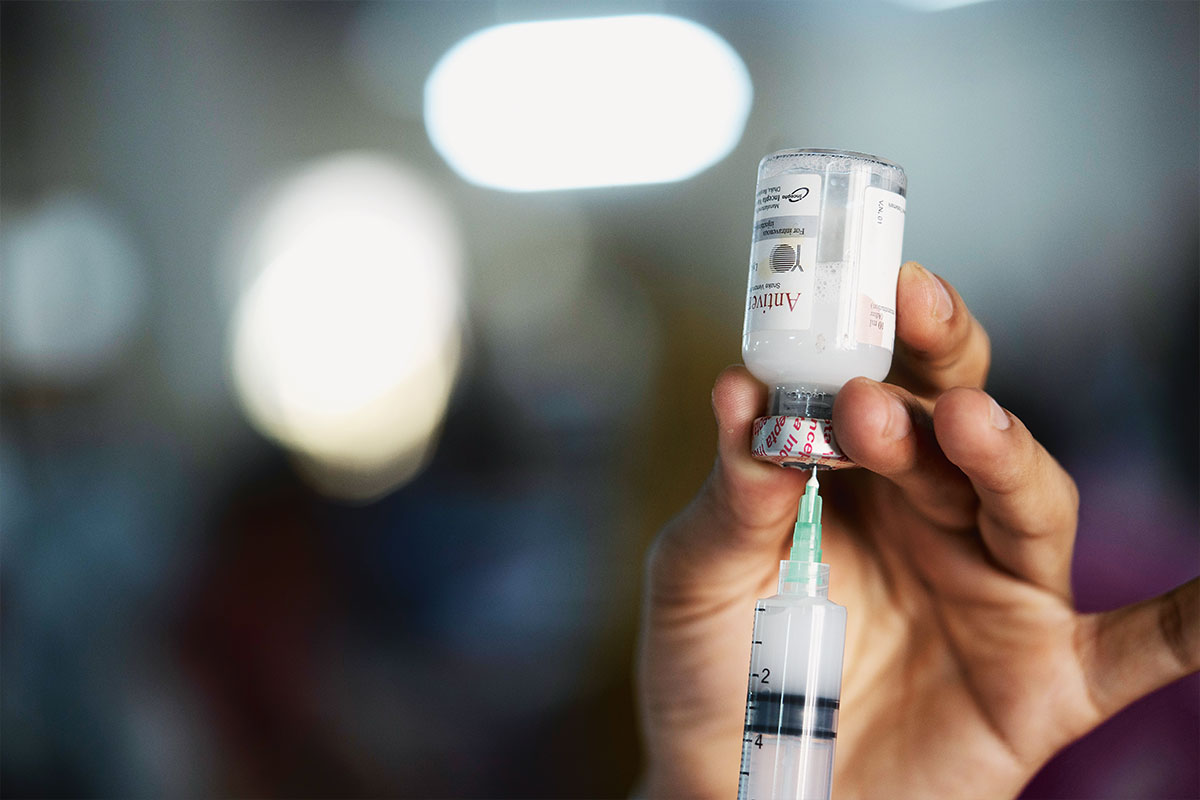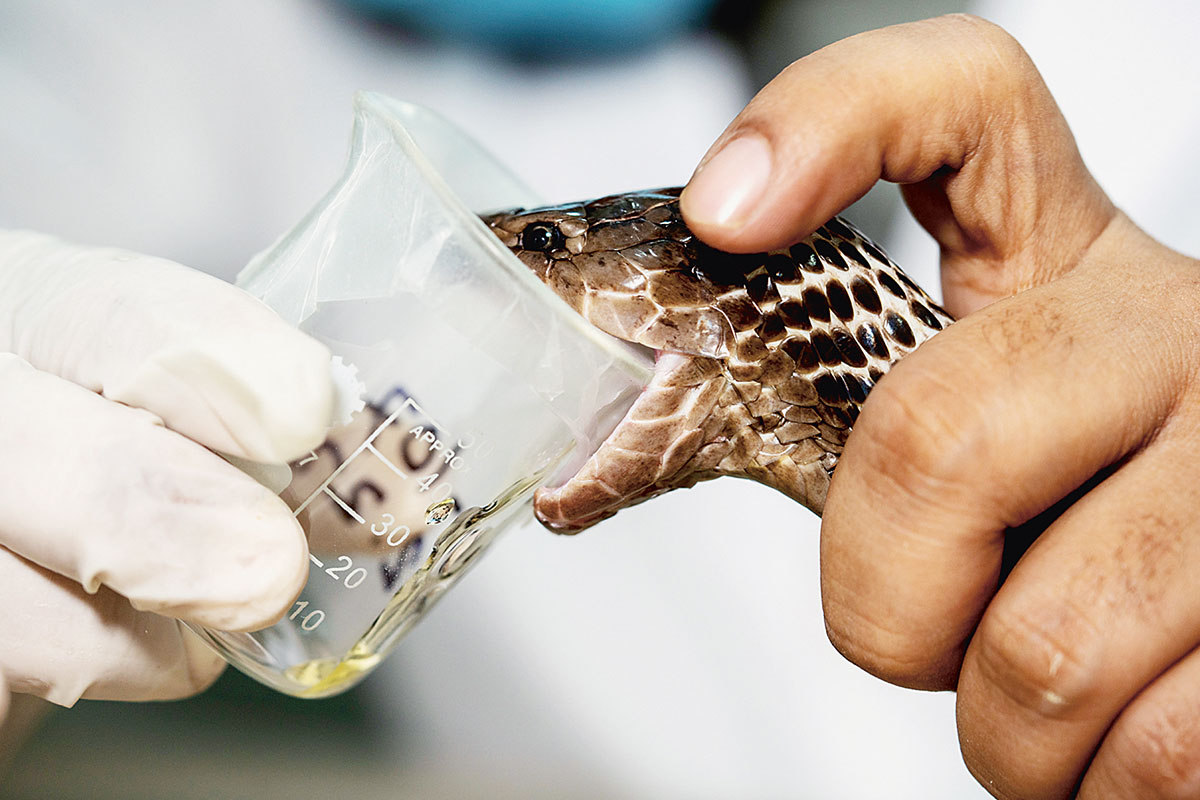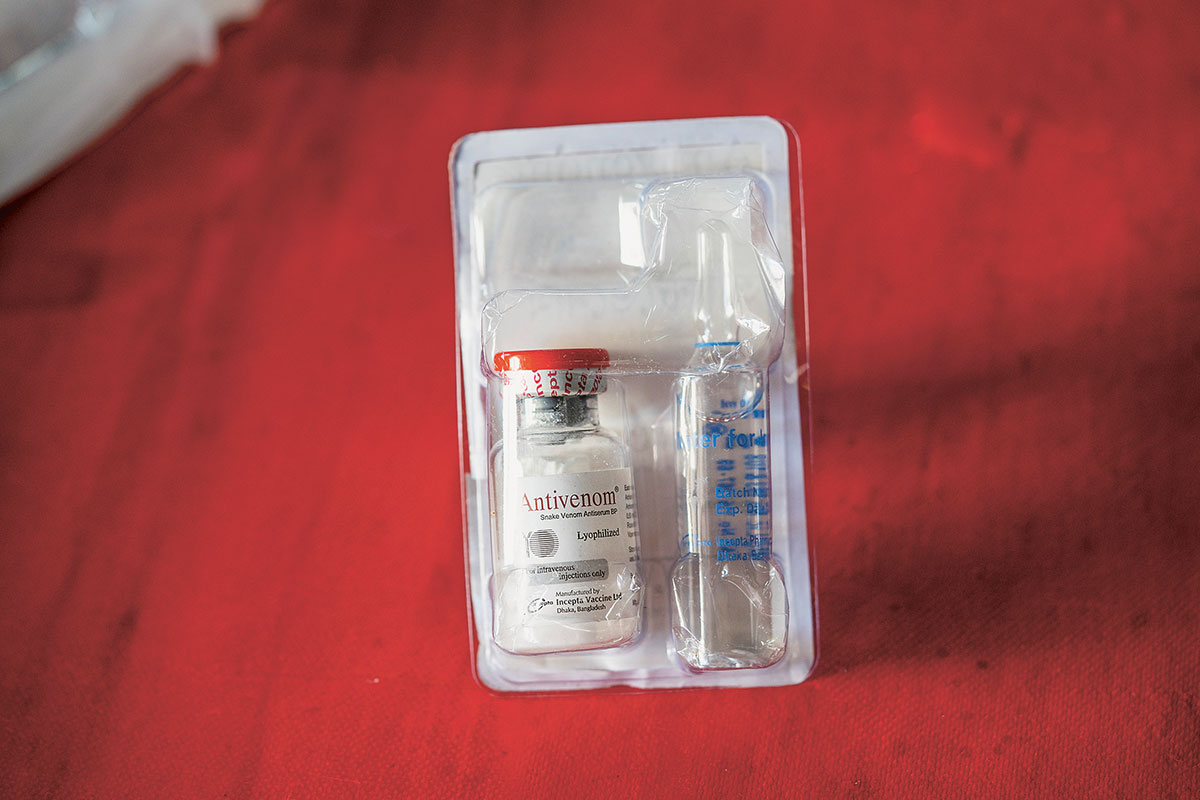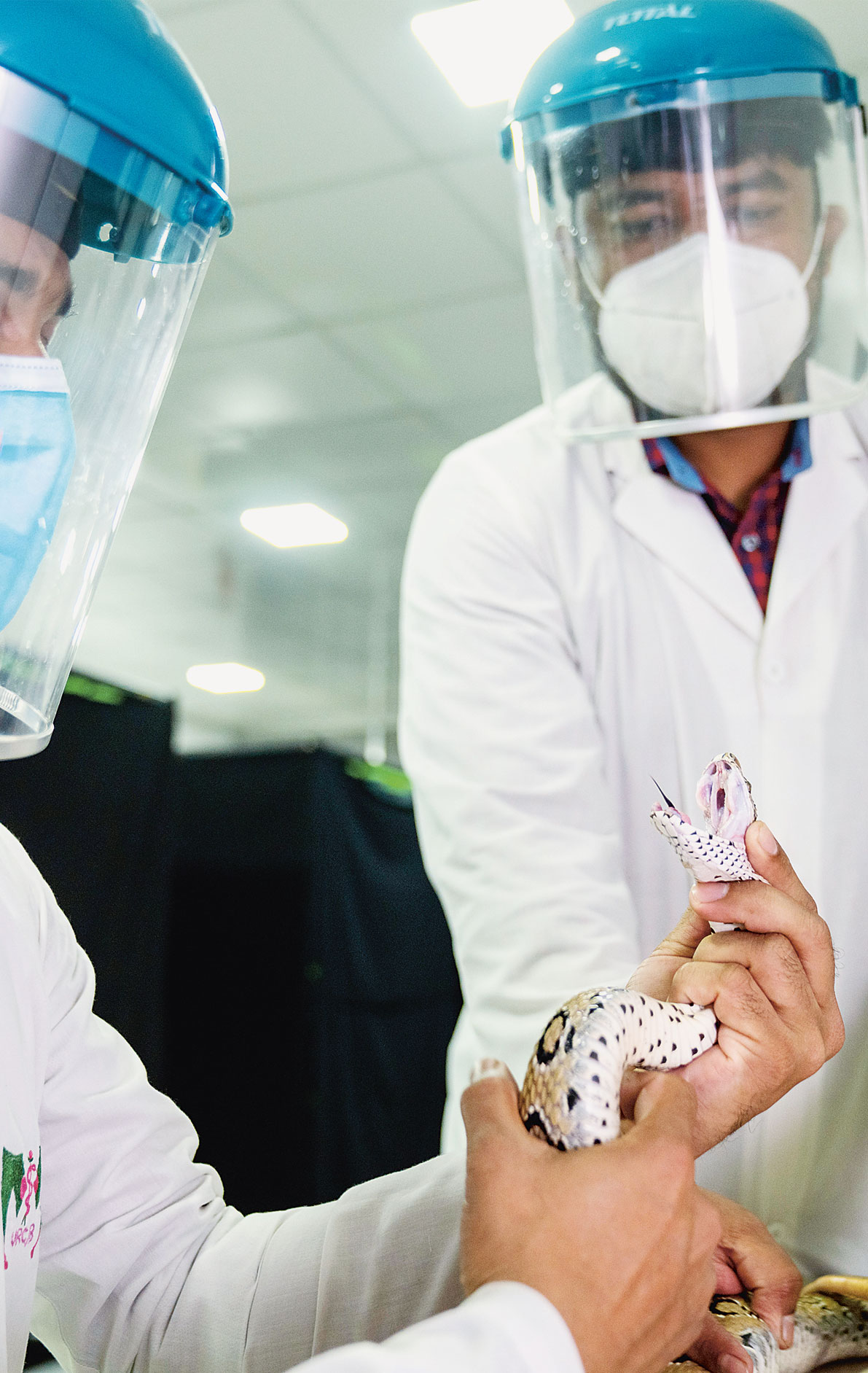The invaluable treasure housed at Chittagong Medical College (CMC) is closely guarded. Anyone who wants access must navigate their way through a sophisticated security system, don a lab coat, disinfect their hands, pass through an automatic door and then enter via a specially reinforced glass door. Visitors who make it through the last sliding door will be greeted with threatening hisses from the dangerous yet precious treasure that lies within. Three hundred venomous snakes live here in shelves screened with black fabric. Anyone entering the dimly lit, air-conditioned room for the first time could be forgiven for feeling more than a little apprehensive.
Of course the team that works at the CMC Venom Research Centre in Chattogram in south-eastern Bangladesh is in no way put off by this welcome. The research assistants who work with Professor Aniruddha Ghose are on familiar territory. ‘Some snakes get stressed when they sense movement around them. They hiss loudly to signal that people should stay away,’ explains Mizanur Rahman who, like his colleagues, is responsible for looking after and breeding the animals. They use an impressive technique to extract venom, so that they can learn more about the development of the antivenoms that can save human lives. The research scientists clearly feel at home in the company of the reptiles. Today, the team has a visitor, and he feels no different. Dr Ulrich Kuch is one of the world’s most renowned snakebite experts. The biologist heads the Department of Tropical Medicine and Global Health at the Goethe University’s Institute of Occupational, Social and Environmental Medicine in Frankfurt am Main. He is actively involved in a hospital partnership between the hospital on the Bay of Bengal and the Frankfurt University Hospital. Since 2020, both institutions have been part of a global hospital partnership funding programme implemented by the Deutsche Gesellschaft für Internationale Zusammenarbeit (GIZ) GmbH on behalf of the German Federal Ministry for Economic Cooperation and Development (BMZ).
